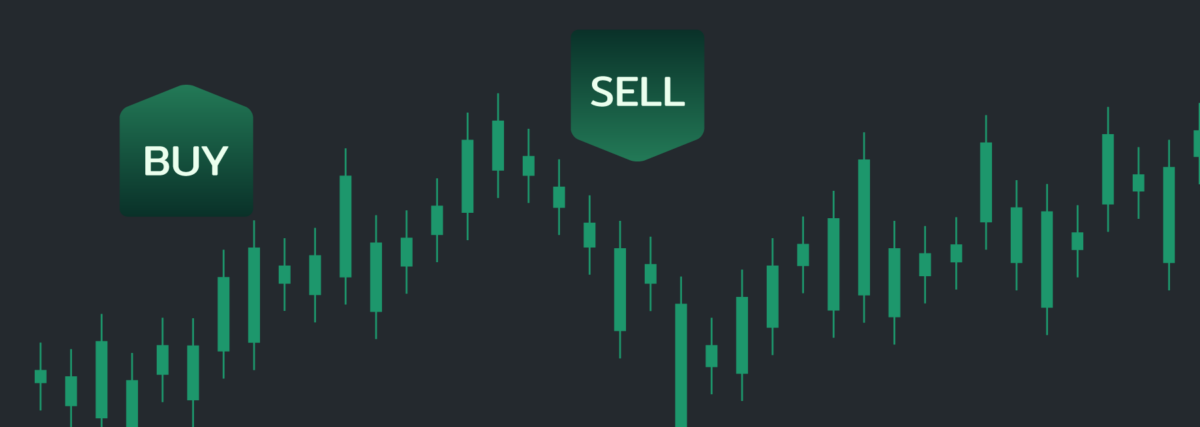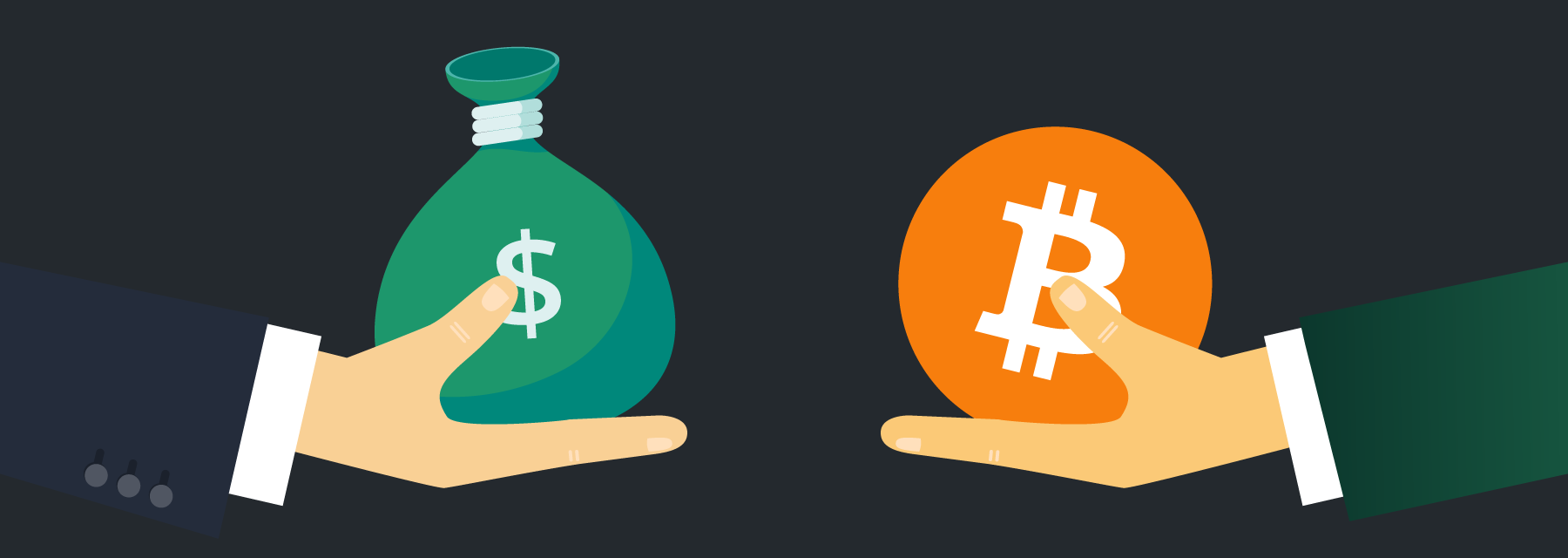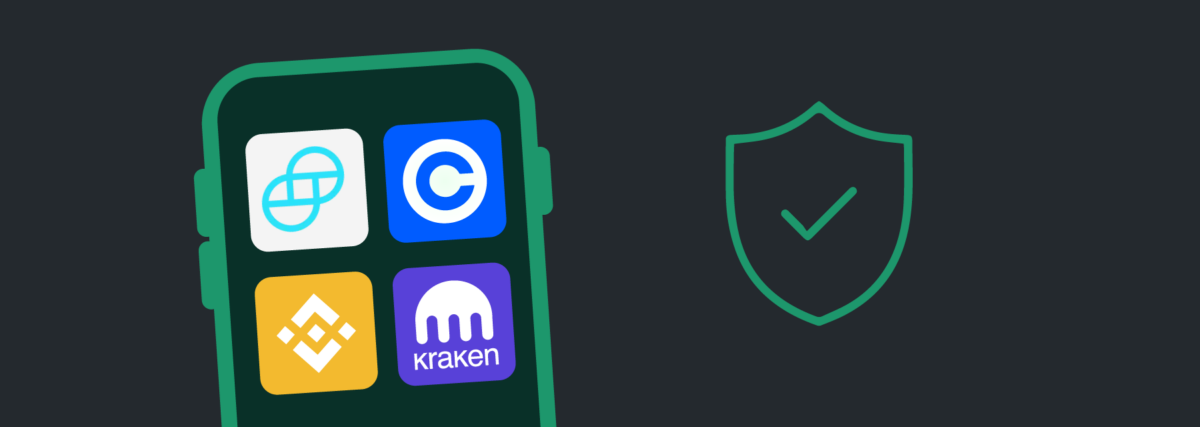Have you ever thought about investing in crypto? Chances are you’ve probably at least thought about it, given the rise of popularity in recent years and the constant talk about cryptocurrencies.
Like all the other currencies, cryptocurrencies need to be listed on the stock market. That place is known as the crypto exchange to trade with them in the crypto world.
But what exactly are crypto exchanges?
Let’s dive in!
What is a crypto exchange?

In simple terms, cryptocurrency exchanges are platforms where you can buy and sell cryptocurrencies.
You can also trade using regular money (also known as fiat currency like USD or EUR) or trade with altcoins (which is short for alternative coins, meaning the other cryptocurrencies that are not bitcoin).
Cryptocurrency exchanges are the middleman between the person buying and selling cryptocurrencies, just like in traditional financial stock markets.
Types of Trading and Purchasing Cryptocurrencies

There are several ways how to trade and purchase cryptocurrencies.
Here are the best types of trading and purchasing cryptocurrencies:
- – Classic exchange process
- – Peer to peer crypto exchanges
- – Brokers and CFDs trading
- – Derivatives exchanges
Let’s start with the easiest of them all—the classic exchange process.
The classic exchange process
As you hаve probably guessed – the classic exchange process works similarly to the financial stock market. Meaning you put in a fiat currency and buy a cryptocurrency.
More specifically, here’s how the process works:
- – Register on a crypto exchange platform;
- – Add fiat money to your account;
- – Buy crypto, which essentially is a fiat to crypto trade;
- – Depending on what your goal is, you can either keep it and transfer it to your crypto wallet or trade it again for fiat money (basically selling the cryptocurrency).
So, when you register on a crypto exchange platform like Binance via your email address, for example, you state the amount of crypto you are looking to buy.
Then, you wait for someone to match your offer in your order book – the place where your money is until the request is matched.
Another way, which is more commonly used, is to go to the crypto marketplace, called the DOM (depth of market), and immediately match (accept) the offers of other buyers or sellers.
2. Peer to peer crypto exchanges
These crypto exchanges work best for large amounts of crypto. They are also very popular in the traditional markets.
Here, unlike in the classic exchange process, you don’t have a middleman. Thus, you exchange and trade the crypto directly with another person.
Another difference from the latter is that this trading is private. Whereas in the classic exchange, the trading is public and available to everyone, in this case, the trading is private and confidential.
If you want to trade on peer-to-peer crypto exchanges, such as LocalBitcoins.com, you need to register and go through a verification process. After that, you are ready to trade directly with other users on the crypto exchange.
3. Brokers and CFD’s trading
There’s another similarity between crypto and the real world, and that’s through brokers and CFD’s trading.
Like in the finance world, you find a broker who advises you on the best cryptocurrencies and times to invest. However, of course, the broker takes a portion of your earnings to cover his fees.
Similarly, a broker can enable CFD trading (short for Contract for Difference trading), and you can trade crypto as well as fiat money.
In CFD trading, you and the broker make a deal where you recreate the market conditions and settle the difference in the value of the cryptocurrency when the trading is finished.
4. Derivatives exchanges
In this case, both parties trade with the assumption of how much the cryptocurrency will be worth in the future.
For example, first, two parties bet on how much the price of the cryptocurrency will be on a specific date in the future, completely disregarding the current market conditions (simply said, what is the current price of the crypto).
Depending on the actual price on that specific day, you earn a profit if you bought it at a lower price and sold it as a more expensive one.
If you are good at trading, the benefit is the high leverage with instruments such as perpetual swaps and futures and low transaction costs.
Types of cryptocurrency exchanges

Centralized (CEX)
Centralized (CEX) – governed by a company that handles your cryptocurrency; Buyers meet sellers on a centralized platform.
Pros: Good for beginners and if you want someone being responsible for your money
Decentralized (DEX)
Decentralized – no company involved, just a service platform connecting buyers and sellers using smart contracts.
Pros: Safer with slight chances of security breaches
What are the most secure and best crypto exchange apps?

Did you know that there are more than 6,500 different cryptocurrencies on the market today, and you can find them on more than 300 platforms?
These platforms include some of the most popular crypto exchanges and some of the most secure exchanges.
If you are wondering what is the best crypto exchange out there and looking to start investing in crypto, here are some of the best crypto exchange apps:
Lowest fee crypto exchange
If you are a beginner in the crypto investment world, you probably wonder which crypto exchange has the lowest fees.
That’s why we are giving you a list of the cheapest crypto exchange fees:
- Abra – 0 %
- CEX – 0.00-0.15% maker fees; 0.01-0.25% taker transaction fee (2.99% deposit)
- Kraken – 0 %-0.26 %
- Coinbase – 0.50% for buyer-seller transactions; as well as a transaction fee from $0.99 to $2.99; up to 0.50% for Coinbase Pro
Although not on the best crypto exchange list, the lowest fee crypto exchange is Abra which has a 0 % exchange fee because the fees are spread out the exchange rates.
Ready to start your crypto journey?
Crypto is not as complicated as it looks. If you feel like you are ready to become a crypto investor and take the steps to financial freedom, we are happy to help you figure it all out.
So, don’t hesitate to reach out to us at any time!



![Crypto Market Cap: The Complete Guide [2022]](https://cryptodivein.com/wp-content/uploads/2022/03/220313_Crypto-Market-Cap_0-500x383.png)